Camping is an enjoyable way to connect with nature, but when temperatures drop, a reliable camping heater becomes essential. A good heater can make your camping experience more comfortable by keeping your tent or campsite warm. With various options available, selecting the right camping heater involves considering factors such as fuel type, size, and features. This article will guide you through the process of choosing the right camping heater for your next adventure, ensuring that you stay warm and cozy while enjoying the great outdoors.
Understanding Your Heating Needs
Assessing Your Camping Environment
The first step in choosing a camping heater is to assess your specific heating needs. Different camping environments can significantly influence what type of heater you require. If you’re planning to camp in mild weather, a small, portable heater may suffice. However, if you’re heading into colder climates, you will need a more robust heating solution.
Consider whether you’ll be camping in a tent, an RV, or a cabin. Tent camping often requires a smaller, more portable heater, while RV campers may prefer built-in options. Understanding your environment will help narrow down your choices and ensure that you select a heater appropriate for your needs.
Determining Desired Temperature
Another critical factor to consider is the desired temperature inside your camping space. Are you looking for a heater to provide a slight warmth or one that can heat an entire tent? Assessing the space you will be using and your comfort preferences can help gauge how powerful the heater needs to be. Performance is often measured in British Thermal Units (BTUs), which indicate the heater’s heating capacity.
A heater with a higher BTU rating is generally more powerful but may consume more fuel. Therefore, it’s crucial to also consider the balance between heating efficiency and fuel consumption based on your camping duration and location.
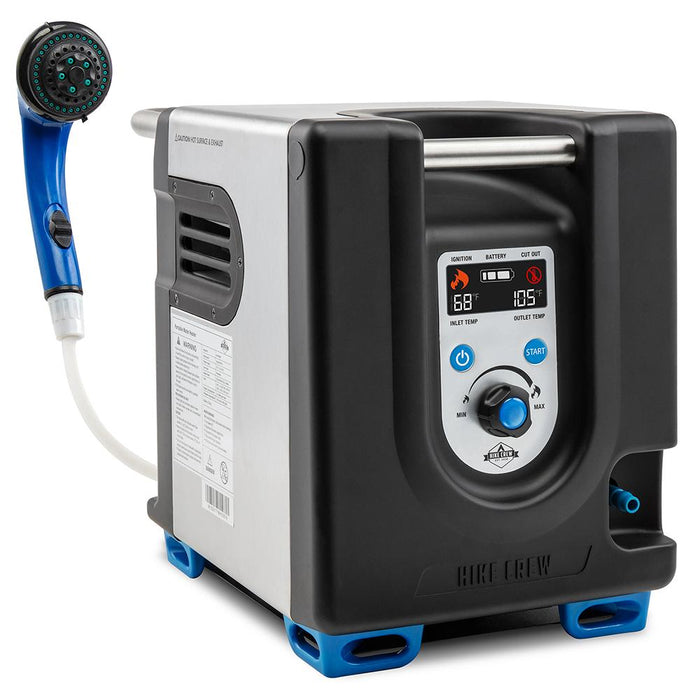
Types of Camping Heaters
Electric Heaters
Electric heaters are an option for campers who have access to travel power. These heaters can be lightweight and portable, with varying levels of heat output. They are best used in settings with electrical hookups, such as RV parks or cabins. The convenience of electric heaters lies in their ease of use; simply plug them in and enjoy instant warmth.
However, it’s important to consider that electric heaters will require a power source. For off-grid camping, this type of heater may not be viable. Additionally, electric heaters may not provide enough warmth in extreme cold, as they often lack the high output of gas models. Therefore, electric heaters are best for campers who prioritize comfort in milder conditions and have reliable electricity available.
Propane Heaters
Propane heaters are among the most popular options for camping due to their efficiency and portability. These heaters can generate significant heat and are available in various sizes. Many propane models are designed with safety features, including automatic shut-off mechanisms, making them suitable for use in tents or enclosed spaces.
When using propane heaters, it is important to ensure proper ventilation. Carbon monoxide poisoning can occur if the heater is used in an enclosed environment without adequate air flow. Always check the manufacturer’s instructions and safety recommendations when operating propane heaters. Additionally, consider the availability of propane canisters in your camping area, as this can affect your overall experience.
Wood-Burning Heaters
For a more rustic camping experience, wood-burning heaters can offer ambiance and warmth. These heaters provide a unique outdoor experience, as they allow you to enjoy the crackling sound of fire while staying warm. Wood burners can be more energy-efficient and environmentally friendly. They burn wood scraps and require no bulky fuel canisters.
However, they can be heavier and more complex to use. You will need to carry wood with you or find suitable materials for burning. Consider this type of heater for dedicated camping trips where you can set up a more permanent camping environment, such as in a cabin or secured outdoor space. Proper safety guidelines and precautions should be followed when working with fire.
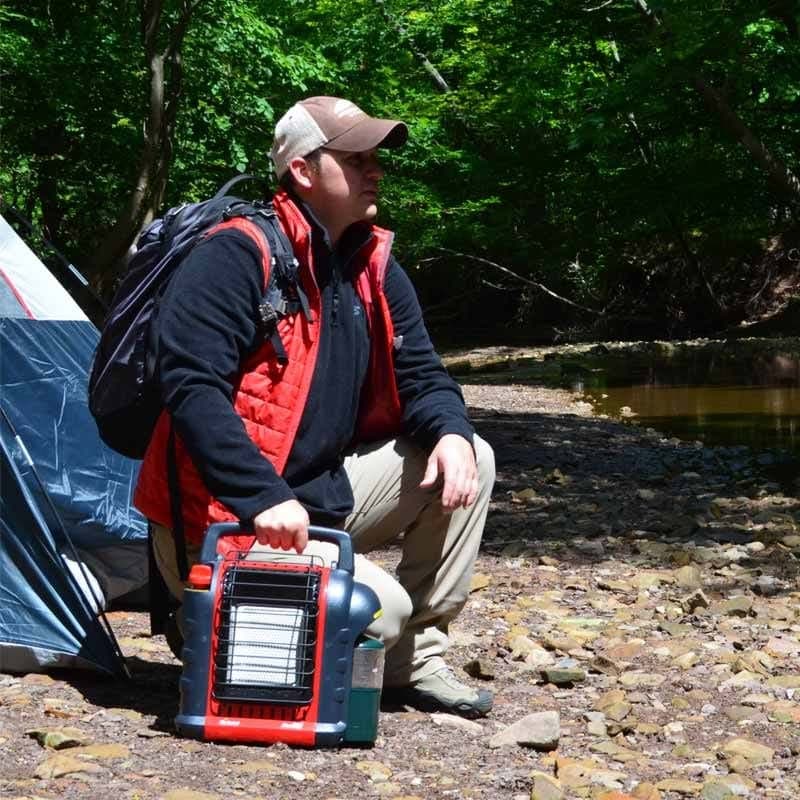
Size and Portability
Assessing Heater Size
The size of the camping heater is another crucial factor to consider. A heater that is too large can be cumbersome to carry and may not fit in your camping space. Conversely, a heater that is too small might not effectively heat the area. Portable heaters are available in various sizes, so choose one that best suits your setup and needs.
When selecting a heater, think about how much space you need to heat. For smaller tents, a compact heater can provide adequate warmth without overwhelming the space. Larger setups may require more robust options. Many manufacturers provide information about the heating coverage area, which can help people decide which size is ideal for their camping situation.
Considering Weight and Transportability
Portability is essential for campers who will be carrying their gear over long distances. Choose a lightweight heater if you’ll be hiking to your campsite or traveling by foot. Many propane and electric camping heaters are designed with portability in mind, featuring handles or foldable designs for easy transport.
Evaluate how the heater fits within your overall gear load and whether it allows for easy packing with other essentials. If you enjoy multiple outdoor activities, consider selecting a heater that is compact without sacrificing performance.
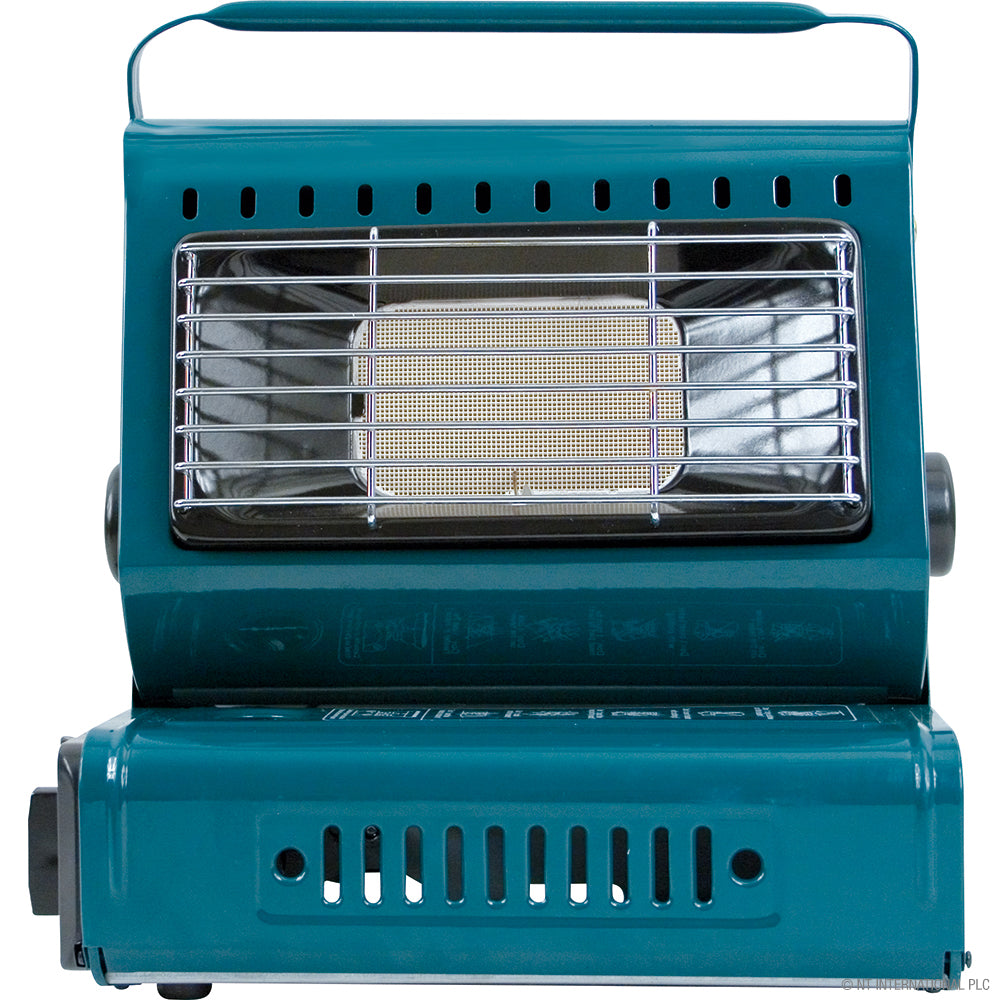
Safety Features to Keep in Mind
Built-In Safety Mechanisms
Safety should always be a top priority when using any camping heating device. Look for heaters with built-in safety features, such as automatic shut-off systems that kick in if the heater tips over. Many modern heaters come equipped with safety features that minimize risks associated with heating, especially in enclosed spaces.
Additionally, carbon monoxide detectors can offer peace of mind if you are using fuel-burning heaters. These detectors can alert you to dangerous gas levels and help you stay safe while you camp. Always ensure that you have a functioning carbon monoxide detector when using propane or wood-burning heaters indoors.
Proper Ventilation
Proper ventilation is crucial when using any camping heater that burns fuel. Ensure that your camping area is adequately ventilated, allowing fresh air to circulate. Even with the safest equipment, a lack of ventilation can lead to dangerous conditions. If using a propane or wood-burning heater inside a tent, make sure it is well-ventilated to avoid trapped gases.
It’s wise to familiarize yourself with the manufacturer’s instructions regarding safe operation. Ensuring proper ventilation will keep you and your camping companions safe while enjoying the warmth provided by the heater.
Fuel Efficiency and Environmental Impact
Evaluating Fuel Consumption
When choosing a camping heater, consider its fuel consumption and efficiency. Check the heater’s specifications for information on how much fuel it requires to operate effectively. Propane heaters often indicate burn times based on canister size, which can help plan your fuel needs based on your camping duration.
Consider how long you intend to be in the wilderness and whether you have access to fuel sources for your heater. If fuel efficiency is a critical factor for you, look for heaters labeled as energy-efficient, which can maximize warmth while minimizing fuel consumption.
Eco-Friendly Options
For environmentally conscious campers, the impact of your heating choice on the surroundings is an important consideration. Some heaters are designed with eco-friendly materials or efficiency in mind, reducing their carbon footprint. Researching brands that prioritize sustainability can help you make an informed choice.
You may also opt for wood-burning heaters that utilize sustainably sourced wood or refuse materials. These options provide warmth while potentially having less impact on the environment compared to fuel-intensive heaters. Prioritizing eco-friendliness can enhance your outdoor experience while being kind to nature.
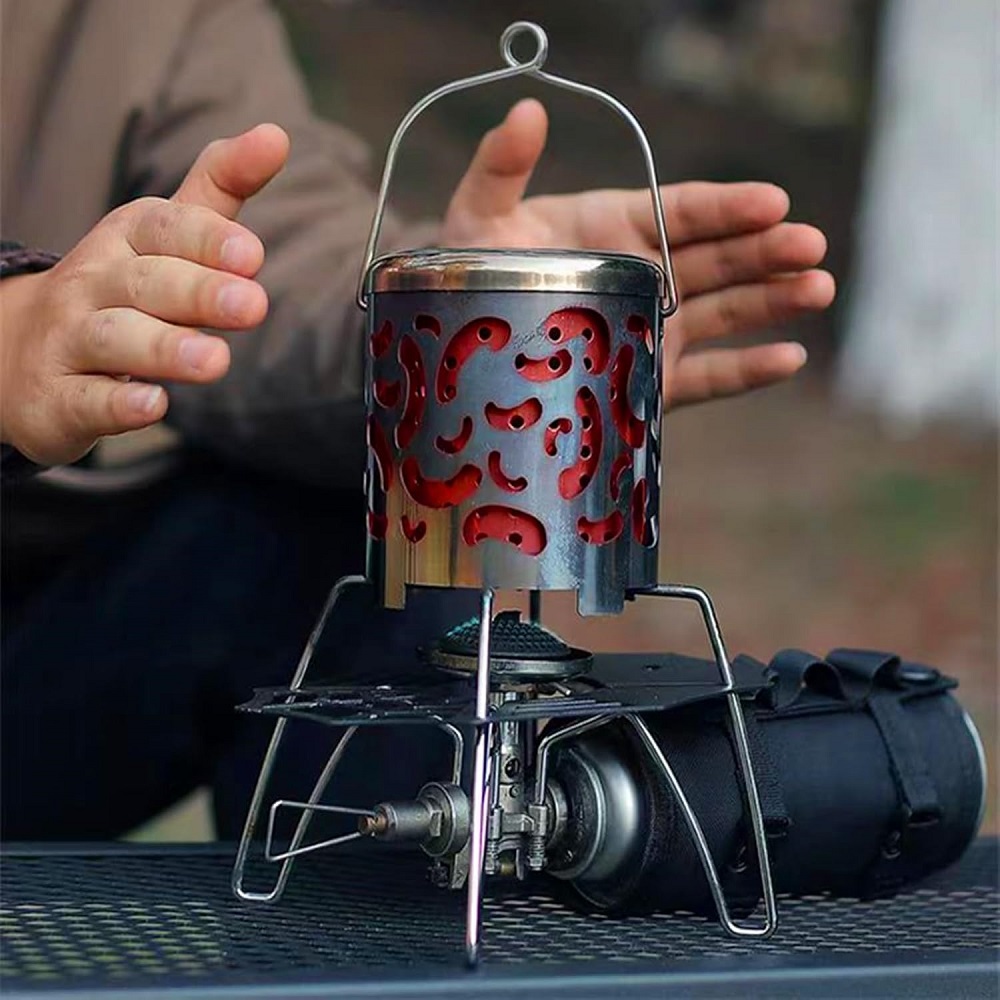
Budget Considerations
Setting a Budget for Your Heater
When selecting a camping heater, it’s essential to set a budget that suits your financial situation. Camping heaters come in a wide range of prices, from budget options to high-end models with advanced features. Determine the features that are most important to you and how much you are willing to invest in a quality heater.
While it may be tempting to go for a less expensive model, consider the long-term value of investing in quality gear. A well-constructed heater that performs efficiently may cost more originally but can pay off by lasting longer and providing reliable warmth over multiple camping trips.
Additional Costs to Consider
In addition to the upfront cost of the heater itself, factor in any additional expenses. This includes fuel costs, maintenance, and accessories such as protective covers or extra safety equipment. Planning for these costs ensures that you are prepared for your camping adventure without any financial surprises.
Researching various models and comparing prices can help you find options that fit within your budget while still meeting your heating needs. Many online reviews can guide you toward products that offer good value for your money.
Preparing for Your Adventure
Testing Before You Go
Once you’ve selected your camping heater, take the time to test it before your trip. Familiarizing yourself with its operation and features can prevent issues when you’re out in the wild. Set up the heater in a controlled environment to learn how to operate it properly.
Testing your heater in advance allows you to check for any safety concerns or malfunctions. Practice setting it up, refueling it, and adjusting the settings. Understanding how the heater functions will pay off when the temperatures drop during your camping outing.
Packing Your Gear
Once you feel comfortable with your heater, carefully pack it along with your other camping gear. Assess how your heater will fit into your camping setup, ensuring that you can transport it without hassle. Use protective covers to prevent damage during transit, and keep everything neatly organized.
Preparation is key to having an enjoyable camping experience. By thoroughly preparing your heater and gear, you help ensure your adventure will be a success. Once you’re well-prepared, you can focus on enjoying the sights and sounds of nature as you camp in comfort and warmth.
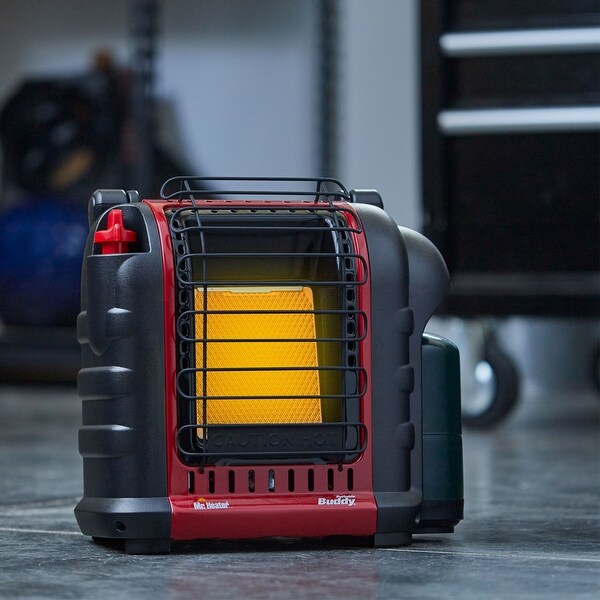
Seasonal Adjustments
Adapting to Changing Weather Conditions
When planning your camping trip, it’s crucial to consider the seasonal weather conditions. Many campers may not realize that even in milder months, temperatures can drop significantly at night. Having the right camping heater can address these fluctuations, ensuring that you stay warm regardless of the season. For example, during early spring or late fall, a more powerful heater with higher BTUs may be necessary to combat the chill of the night air.
In contrast, if you’re camping in a region known for warm days but cool nights during the summer, a smaller heater may be adequate. This type of setup allows you to enjoy the warmth without overheating during the day. Always check the weather forecast before your trip, as this information can guide your heater choice and packing strategy. Being prepared for seasonal changes will make your camping experience much more enjoyable and comfortable.
Preparing for Unforeseen Circumstances
It is also wise to prepare for unforeseen weather conditions. Weather can be unpredictable, leading to sudden cold snaps or rain. In such cases, having a backup heat source can be invaluable. Some campers opt for portable propane heaters as the primary source of heat but also bring along battery-powered electric heaters as a backup. This way, even if the weather changes unexpectedly, you have options available to keep warm and stay comfortable.
Furthermore, packing extra blankets and sleeping bags that are designed for colder conditions can enhance your comfort and warmth. These items serve as an additional layer of insulation, allowing you to combine various heat sources effectively. Planning for different scenarios not only secures your comfort but also enhances your peace of mind during your adventure.
Community and Knowledge Sharing
Engaging with Fellow Campers
Another benefit of choosing the right camping heater is the opportunity to engage with the camping community. Many campers enjoy sharing their experiences, tips, and recommendations for gear, including heaters. Participating in forums or local camping events gives you access to valuable insights. You may discover new heater models, brands, or techniques you hadn’t considered before.
By connecting with fellow campers, you also gain first-hand knowledge about what works for specific conditions and environments. Many seasoned campers have tried various heaters and can provide recommendations based on their experiences. This communal knowledge can assist you in making more informed decisions tailored to your specific camping style and preferences.
Leveraging Online Resources
In addition to engaging with people in the camping community, leveraging online resources can also be beneficial. Many websites and blogs are dedicated to outdoor activities, providing comprehensive reviews comparing different camping heaters. You can find articles that test various heaters under real-world conditions, allowing you to see how they perform before making a purchase.
Social media groups and platforms can also offer valuable advice and inspiration for your camping adventures. Seeing how others style and utilize their camping heaters can spark ideas that enhance your experience. By tapping into both community engagement and online resources, you empower yourself to make informed choices that will contribute to a successful and enjoyable camping trip.
Enjoying Warmth on Your Camping Adventure
In conclusion, choosing the right camping heater is vital for a comfortable outdoor experience, especially in colder conditions. By understanding your heating needs, exploring various types of heaters, and prioritizing safety and efficiency, you can select a heater that best fits your camping style.
As you prepare for your adventure, remember to consider factors such as portability, budget, and environmental impact. Testing your heater and planning ahead will ensure that you are ready for any situation. With the right camping heater, you can enjoy warmth, comfort, and the beauty of nature during your outdoor escapades. Embrace the adventure that awaits, knowing that you have made informed choices to enhance the joy of camping!
